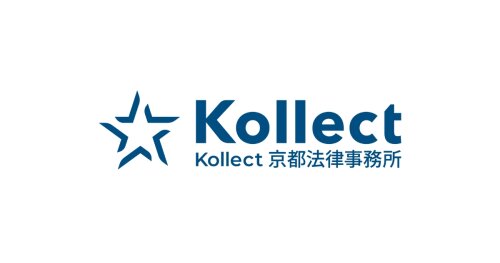Best Government Relations & Lobbying Lawyers in Kyoto
Share your needs with us, get contacted by law firms.
Free. Takes 2 min.
List of the best lawyers in Kyoto, Japan
About Government Relations & Lobbying Law in Kyoto, Japan
Government relations and lobbying in Kyoto, Japan, involves engaging with local, regional, and national government entities to influence policy decisions and legislative outcomes. This practice is governed by regulations that aim to ensure transparency and ethical conduct by all stakeholders involved. Due to Japan's unique blend of modern governance influenced by traditional cultural values, the lobbying landscape here offers distinct challenges and opportunities to navigate. Understanding the intricate framework of laws and regulations is crucial for anyone involved directly or indirectly in governmental interactions.
Why You May Need a Lawyer
Navigating the field of government relations and lobbying in Kyoto can be complex. You might need legal assistance in various situations, including:
- Understanding compliance requirements related to lobbying laws and regulations.
- Developing strategies for engaging with government representatives effectively and ethically.
- Assisting with reporting obligations and transparency requirements.
- Handling disputes or investigations related to lobbying activities.
- Guidance on interactions with public officials and staying within the legal boundaries.
- Assistance with drafting and submitting petitions or proposals to government entities.
Local Laws Overview
The legal landscape of government relations and lobbying in Kyoto is shaped by national laws with local administrative interpretations. Key aspects include:
- Transparency Requirements: Lobbying activities must be transparent. This often means registering as a lobbyist and disclosing interactions with public officials.
- Ethics and Conduct: There are stringent codes of conduct to ensure interactions are ethical and in public interest.
- Reporting Obligations: Regular reports on lobbying activities may need submission to relevant government bodies.
- Restrictions and Prohibitions: There are specific rules about gifts, hospitality, and payments to public officials to avoid undue influence.
- Penalties for Non-Compliance: Failure to comply can result in significant fines and legal action against individuals and organizations.
Frequently Asked Questions
What is lobbying and why is it regulated?
Lobbying is the act of attempting to influence decisions made by officials in the government, and it is regulated to ensure transparency, integrity, and fair representation in governmental processes.
Do I need to register as a lobbyist in Kyoto?
If your activities involve regular interaction with government officials for the purpose of influencing decisions or legislation, registration may be required.
What are the consequences of non-compliance with lobbying laws?
Non-compliance can lead to penalties, including fines, sanctions, and potential legal action against the individuals or organizations involved.
Are there restrictions on gifts to government officials?
Yes, there are strict regulations regarding the giving of gifts or offering hospitality to prevent undue influence on policy decisions.
Is lobbying legal in Japan?
Yes, lobbying is legal, but it is subject to strict regulations to ensure transparency and ethical conduct in governmental decision-making processes.
What transparency measures are required for lobbyists?
Lobbyists may be required to disclose their activities through regular reports, including details of their meetings, expenditures, and the subjects discussed with officials.
How frequently do I need to file reports if I am a registered lobbyist?
The frequency of filing reports can vary, but typically, it may be required quarterly or annually as per specific guidelines.
Are there legal limits to how much I can spend on lobbying activities?
Yes, there may be limits set on expenditures related to lobbying, especially concerning gifts and hospitality extended to public officials.
How can a lawyer help with government relations and lobbying?
A lawyer can provide valuable guidance on compliance, strategic advice for effective engagement, and help to navigate complex regulatory environments.
Can lobbying activities be conducted internationally from Kyoto?
International lobbying activities are subject to both domestic regulations and the laws of the other country involved, and legal advice may be essential to navigate this landscape successfully.
Additional Resources
Those seeking further information or legal advice can contact the following bodies and organizations:
- Kyoto Prefectural Government Office
- Japan Lobbyists Association - offers resources and guidance for lobbyists
- Ministry of Internal Affairs and Communications - provides information on legal compliance and regulations
- Local law firms specializing in government relations and administrative law
Next Steps
If you require legal assistance with government relations and lobbying in Kyoto, consider taking the following steps:
- Consult with a lawyer who specializes in government relations and lobbying laws.
- Research and prepare necessary documents like registration forms and transparency reports.
- Engage with a local consultancy firm experienced in government affairs.
- Stay informed about local and national legislative changes that may impact your activities.
Lawzana helps you find the best lawyers and law firms in Kyoto through a curated and pre-screened list of qualified legal professionals. Our platform offers rankings and detailed profiles of attorneys and law firms, allowing you to compare based on practice areas, including Government Relations & Lobbying, experience, and client feedback.
Each profile includes a description of the firm's areas of practice, client reviews, team members and partners, year of establishment, spoken languages, office locations, contact information, social media presence, and any published articles or resources. Most firms on our platform speak English and are experienced in both local and international legal matters.
Get a quote from top-rated law firms in Kyoto, Japan — quickly, securely, and without unnecessary hassle.
Disclaimer:
The information provided on this page is for general informational purposes only and does not constitute legal advice. While we strive to ensure the accuracy and relevance of the content, legal information may change over time, and interpretations of the law can vary. You should always consult with a qualified legal professional for advice specific to your situation.
We disclaim all liability for actions taken or not taken based on the content of this page. If you believe any information is incorrect or outdated, please contact us, and we will review and update it where appropriate.










